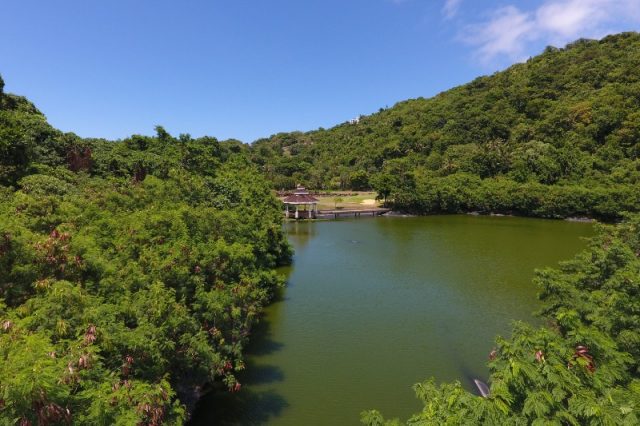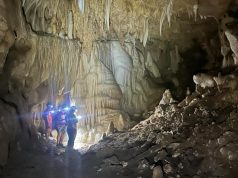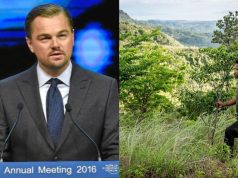The wetlands in Boracay took the spotlight during the celebration of the local observance of World Wetlands Day 2022.
The Department of Environment and Natural Resources through its Biodiversity Management Bureau (DENR-BMB) led the event at the Boracay Wetland Conservation Park on February 2.
DENR’s Facebook page also released photos of the newly rehabilitated conservation park, which was formerly called Wetland No. 2, located in Barangay Balabag on the island of Boracay.
Energy Development Corporation (EDC), a private company, completed the rehabilitation of the park after more than three years.
In 2018, EDC “adopted” the task of rehabilitating the once-degraded fragmented forest.
In a separate statement, the DENR-BMB said that Wetland No. 2 served as “a reservoir not only of rainwater of the surrounding catchment during rainy season but also of the domestic sewerage of residential houses adjacent to the wetland.”
It is also the last remaining intact wetland on the entire island.
The adoption of the wetlands is part of DENR’s “Adopt-a-Wetland Program.”
Aside from EDC, other companies involved in the initiative included the Aboitiz Equity Ventures Inc., Boracay Tubi System Inc., Energy Development Corp. (EDC), and J.G. Summit Olefins Corp.
In a statement, Environment Secretary Roy Cimatu highlighted the importance of restoring the island’s wetlands for tourism and ecological purposes.
“Wetlands are among our country’s natural assets and thus we have made them part of our ongoing rehabilitation of Boracay Island. We believe that showcasing their importance through wetlands recovery and restoration in the island is an effective means of spreading awareness to the public,” Cimatu said.
“By restoring the ‘Wetlands of Boracay,’ we do not only conserve their ecological functions in the island but also add up to the diversification of Boracay’s tourism attraction sites,” he added.
World Wetlands Day
National Geographic defines a wetland as “an area of land that is either covered by water or saturated with water.”
Wetlands are also considered as “giant sponges” and “reservoirs” of Earth.
They mainly protect coastal communities from storm surges and flooding brought by strong storms.
“During heavy rains, wetlands absorb excess water, limiting the effects of flooding. Wetlands also protect coastal areas from storm surges that can wash away fragile beaches and coastal communities. Saltwater swamps and tidal salt marshes help secure coastal soil and sand,” National Geographic said.
They only cover around 6% of the Earth. However, 40% of all plant and animal species thrive in them.
These include mangrove trees that are known as natural shields against strong typhoons.
RELATED: ‘Save the mangroves’: Nadine Lustre joins calls to save nature’s ‘shield vs typhoons’
The United Nations established World Wetlands Day on Feb. 2, 1971 to raise global awareness on the importance of wetlands to the people and the planet.
The day also marked the adoption of the international treaty called the Convention on Wetlands.










